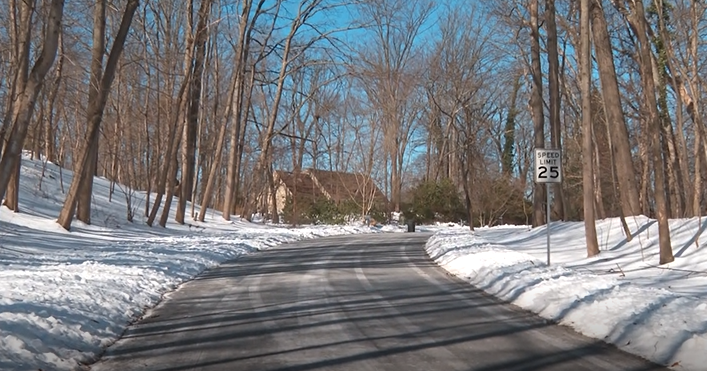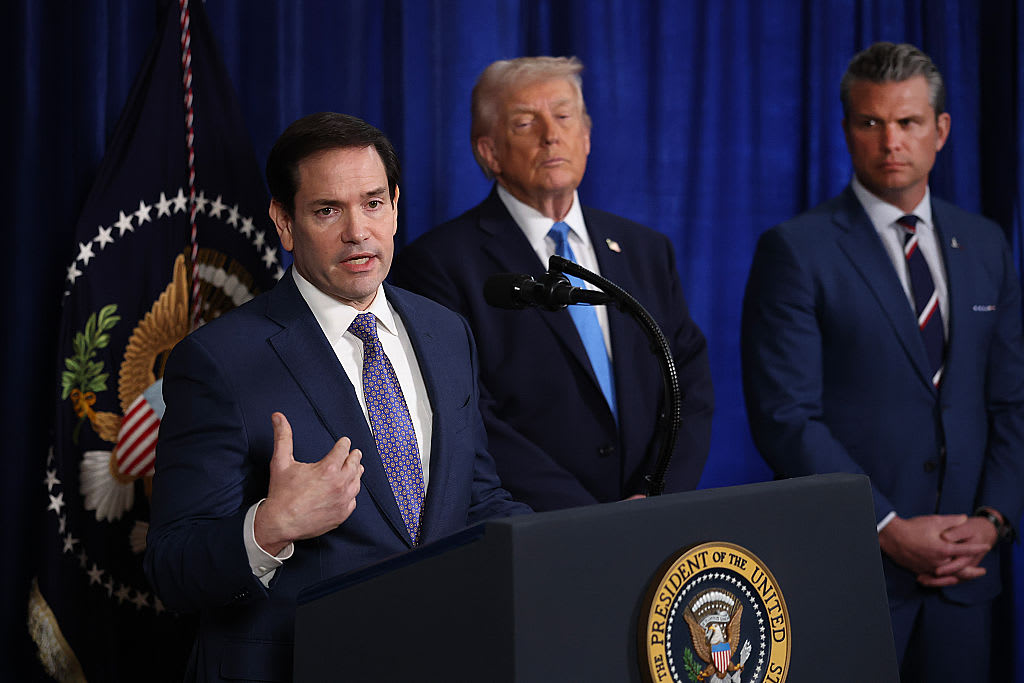Transcript: Carlos Giménez on "Face the Nation," July 5, 2020
The following is a transcript of an interview with Miami-Dade County Mayor Carlos Giménez that aired Sunday, July 5, 2020, on "Face the Nation."
MARGARET BRENNAN: We want to turn now to another mayor in another hot spot in South Florida. The mayor of Miami-Dade County is Carlos Gimenez and he joins us from Miami this morning. Thank you for joining us, Mr. Mayor.
MAYOR OF MIAMI-DADE COUNTY CARLOS GIMENEZ: It's a pleasure.
MARGARET BRENNAN: You've put in some pretty stringent restrictions in the past few days on this holiday weekend, you put in place a curfew. You've stopped alcohol from being served at hotels after 8:00 p.m., mask wearing. Are your residents now taking this threat seriously?
MAYOR GIMENEZ: Well, I think they are, but I think the- the- my residents also kind of let their guard down around late May, early June, and also some of the protests that we had here, I think contributed to it. So we saw a rapid rise in young people in getting- being positive to COVID-19 around mid June. And I think that that had a lot to do with probably socializing, young kids going to parties, maybe graduation parties at homes, because it's- it's been pretty locked down here for some time. We have a strict mask order inside. When you're inside since April 19th, you're supposed to wear a mask. You're supposed to wear a mask when you're outside unless you can maintain social distancing. We changed that now to wearing a mask all the time. We shut down the beaches this weekend. We restricted alcohol sales. We've also closed, again, some of the places where people can congregate like movie theaters and bowling alleys and casinos and all that, because we have seen a sharp rise in the positivity rate, just like they have in Houston.
MARGARET BRENNAN: So you do trace it to the protests because we just heard the mayor of Houston say that was not it. It was the restaurants, the businesses and people gathering in those kinds of things.
MAYOR GIMENEZ: No, I think it's all the above. I think, obviously, the protests had a lot to do with it. We had, you know, thousands of young people together outside, a lot of them not wearing masks. And we know that when you're- when you do that and you are talking and you are chanting etc., that really spreads the virus.
MARGARET BRENNAN: OK.
MAYOR GIMENEZ: So absolutely, the- the protests had something to do with it. But also our people, our residents, you know, did not- I think they let their guard down and started to socialize. And again, that also had to do with it. So it's all the above. I'm not saying it's just that,--
MARGARET BRENNAN: Right.
MAYOR GIMENEZ: --but it was a contributing factor.
MARGARET BRENNAN: Give us a sense of who is getting ill and how ill they are getting. Because as I asked the other mayor, the president said yesterday, 99% of these cases are totally harmless. What's happening in Miami?
MAYOR GIMENEZ: Well, there's a difference between what is the real- what's the official number and what's the real number? We ran a study down here in Miami-Dade a couple of months ago that said over 200,000 people had already had the virus or had the virus at the time. So our official number is maybe 40,000 have officially had it. What concerns me is the positivity rate. We had it down to about eight percent of the people getting tested were showing up positive. Now they're over 20 percent are showing up positive. That's the problem for us. And so we've seen because we've seen an increase--
MARGARET BRENNAN: How ill are they getting with hospitalizations and the degree of lethality to this? Because last week you were on Fox News and you said the good news here is that it's not as lethal as people think it is.
MAYOR GIMENEZ: Yeah.
MARGARET BRENNAN: That seems in contradiction to your very stringent guidelines now.
MAYOR GIMENEZ: No, because, look, we just have more people that are being positive. And so the more you have at the end, you're going to have more people, you know, pass away, unfortunately, because it's just a question of- of numbers. And so we do have a lot of young people that have gotten- that have gotten positive results. We have had- seen an increase in the number of- of hospitalizations. We have seen an increase in the number of ICUs and also an increase in the number of ventilations simply because we have a- more of our people are actually testing positive, which indicates more of the people of Miami-Dade County are coming up with COVID-19. And so when you have more, you obviously will have more hospitalizations, more ICUs, more- more respirators,--
MARGARET BRENNAN: Right.
MAYOR GIMENEZ: --and unfortunately, you'll have more fatalities.
MARGARET BRENNAN: So you would agree that going on a respirator, being hospitalized means that the virus is not harmless, as the president characterized it.
MAYOR GIMENEZ: No, the virus is not- no, no--
MARGARET BRENNAN: Thank you.
MAYOR GIMENEZ: --the virus is not harmless. No, absolutely not.
MARGARET BRENNAN: So that is- right.
MAYOR GIMENEZ: I mean that's why- if it were harmless, I wouldn't be taking the steps that we're taking here in Miami-Dade.
MARGARET BRENNAN: Exactly. I want to ask you where the concentrations of clusters are.
MAYOR GIMENEZ: Well, it's- initially it started out in the middle of the city and- and also down south, and so we have our- our farm workers down south, and we had a big concentration down there. And then in the middle of the city and some of the poor neighborhoods, we had concentrations, but now it's spreading. And it's spreading throughout the county. So we have what we call surge teams or people with over 100 people. We go out. We give masks. We give hand sanitizers information and drive home the point that we have to wear our masks when they are inside. We have to wear our masks outside. We have to wash our hands. We need to keep away from each other. And if we do that, if we act responsibly, then we can tap down the positivity rate, get it down below 10 percent--
MARGARET BRENNAN: Wouldn't it help you if--
MAYOR GIMENEZ: --which is where we need it to be.
MARGARET BRENNAN: Wouldn't it help you if both your state's governor and the president also issued that call?
MAYOR GIMENEZ: Well, look, the- the governor and I talk just about every day, and he allows us down here in Miami-Dade to do things a little differently because the virus has actually been more impactful here in Miami-Dade, Broward and Palm Beach than other parts of the state. And so it's a big state, and there are big differences between what's happening up in the north part of the state--
MARGARET BRENNAN: Right.
MAYOR GIMENEZ: --and what's happening here in Miami-Dade.
MARGARET BRENNAN: Yeah, that's why I was asking you about your portion of the state.
MAYOR GIMENEZ: Yeah, right.
MARGARET BRENNAN: We wish very good luck in getting this under control.
MAYOR GIMENEZ: Thank you, MARGARET. Appreciate it.
MARGARET BRENNAN: We want to leave it there and get- we want to get some perspective on what we just learned out with former FDA commissioner Dr. Scott Gottlieb. He's standing by. Stay with us.



